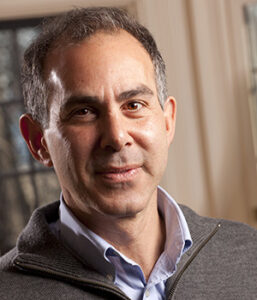BS/MPH: Community & Behavioral Health Promotion BS / MPH
The accelerated MPH Community and Behavioral Health Promotion program is designed to meet the academic and professional goals of high-achieving students who want to begin their career as public health professionals.
The five-year accelerated graduate program consists of 3.5 years in undergraduate status and 1.5 years in graduate status. You’ll develop relationships with our expert faculty in your freshman year that will grow through graduation and beyond.
The BS/MPH in Community & Behavioral Health Promotion prepares high achieving students to use innovative approaches to community engagement and collaborative practice. Students apply a social justice and equity-centered approach to public health training and practice.
Program Type
Accelerated Graduate
Program Format
On Campus
Why I Chose Public Health
“At the Zilber College of Public Health, we have this strong focus on community intervention and social justice.
“I also fell in love with UWM and the campus. This feels like home to me.
Rose Hennessey, PhD Public Health – Community & Behavioral Health Promotion
Coursework in Community & Behavioral Health Promotion addresses theories and frameworks in social and behavioral science, evidence-based methods for program planning (including assessment) and implementation, and program evaluation. Methodogical training addresses quantitative, qualitative, and community-engaged techniques.
Through hands-on learning and mentored field placements, accelerated MPH students develop new specialized skills and ways to improve the health of communities. Public health at UWM is your home to learn, connect, and make a difference!
Accelerated BS/MPH in Community & Behavioral Health Promotion
The BS in public health requires a minimum of 120 credits. The MPH with a concentration in Community & Behavioral Health Promotion requires 48-49 credits. Up to 30 graduate course credits may be double-counted toward the BS in public health.
Undergraduate Courses
General education and foundations courses of at least 33 credits.
Public Health Major Required Courses (48 credits)
PH 101: Introduction to Public Health (3 credits)
PH 142: Exploring Global Environmental Health (3 credits)
PH 201: Public Health from Cells to Society I (3 credits)
PH 202: Public Health from Cells to Society II (3 credits)
KIN 270: Statistics in the Health Professions: Theory and Practice (3 credits)
Or SOCIOL 261: Introduction to Statistical Thinking in Sociology (3 credits)
PH 302: Health and Disease: Concepts and Contexts (3 credits)
PH 303: Climate Change, the Environment & Human Health (3 credits)
PH 304: Foundations of Epidemiology (3 credits)
PH 319: Introduction to Health Disparities (3 credits)
PH 327: Foundations for Action in Public Health (3 credits)
PH 346: Environmental Health and Disease (3 credits)
PH 355: Public Health Research Methods I (3 credits)
PH 410: True Lies — Consuming & Communicating Quantitative Information (3 credits)
PH 427: Strategies for Action in Public Health (3 credits)
PH 428: Project Implementation & Evaluation for a Healthy Society (3 credits)
PH 455: Public Health Research Methods II (3 credits)
Elective credits — up to nine credit hours to reach 120 credits
Graduate Courses
MPH Required Common Core Courses (24-25 credits)
PH 702: Introduction to Biostatistics (3 credits)
PH 703: Environmental Health Sciences (3 credits)
PH 704: Principles and Methods of Epidemiology (3 credits)
PH 705: Principles of Public Health Policy and Administration (3 credits)
PH 706: Perspectives on Community and Behavioral Health (3 credits)
PH 708: Health Systems and Population Health (3 credits)
PH 733: Overview of Qualitative Methods for PH (1 credit)*
PH 790: Field Experience in Public Health (3 credits)
PH 791: Leadership in Public Health (1 credit)
PH 800: Capstone in Public Health (2 credits)
*Not needed if select PH 776 as Methods “S”elective below
Required CBHP Track Courses (12 credits)
PH 700: Structures of Inequality and Population Health (3 credits)
PH 725: Theories and Models of Health Behavior (3 credits)
PH 726: Community Health Assessment (3 credits)
PH 727: Program Planning and Implementation in Public Health (3 credits)
PH 728: Program Evaluation in Public Health (3 credits)
Electives
Select two of the following courses (6 credits):
PH 729: Survey Research Methods in Public Health (3 credits)
PH 776: Qualitative Approaches in Public Health Policy and Administration (3 credits)
PH 831: Community Engagement and Participatory Research Approaches in Public Health (3 credits)
Select one of the following courses (3 credits)
PH 719: Social Justice in Public Health (3 credits)
PH 730: Overview of Children with Special Health Care Needs (3 credits)
PH 740: Special Topics in Public Health (3 credits)
PH 752: Public Health and Mental Health (3 credits)
PH 820: Maternal and Child Health Foundations, Policy and Practice (3 credits)
PH 999: Independent Study (1-3 credits)
Other classes as approved by MPH faculty advisor.
MPH Community & Behavioral Health Promotion Competencies
- Demonstrate a broad knowledge and understanding of community and behavioral health theories and their application to health promotion and prevention.
- Apply relevant theories, concepts, and models from the social and behavioral sciences to public health research and practice.
- Design public health programs, including their implementation and evaluation components.
- Design a plan to assess community-level public health needs and assets.
- Assess social and behavioral factors influencing the health of individuals and communities.
- Apply qualitative and quantitative methods to the assessment of public health problems, the articulation of community strengths, and the evaluation of prevention and intervention programs.
- Identify and apply evidence-based approaches to the development and implementation of social and behavioral science interventions.
- Demonstrate the capacity to effectively explain and discuss planning, implementation, and evaluation of public health programs.
Please note: All courses are subject to change. Please consult the Academic Catalog for the most up-to-date information.
Accelerated MPH in Community & Behavioral Health Promotion Careers
Graduates from the MPH program with a concentration in Community & Behavioral Health Promotion go on to work for health nonprofits, community research organizations, hospitals and other jobs with a health education or health programming component. Job growth for health educators, community health workers and health services managers is higher than average, according to the U.S. Bureau of Labor Statistics.
- Associate Professor, Community & Behavioral Health Promotion
- cho3@uwm.edu
- 414-227-3001
- Zilber 448
- Professor and Program Lead, Community and Behavioral Health Promotion, Licensed Clinical Psychologist
- paulf@uwm.edu
- 414-227-4490
- Zilber 341
- Associate Dean for Academic and Student Affairs
- harley@uwm.edu
- 414-227-4342
- Zilber 515
- Associate Dean for Research. Professor, Community & Behavioral Health Promotion
- weinhard@uwm.edu
- 414-227-5139
- Zilber 441
Community & Behavioral Health Promotion Faculty Expertise
- Substance abuse risk factors among minority populations.
- Effective substance abuse intervention and treatment programs.
- Public health issues relevant to high-risk adolescents.
- Interpersonal developmental processes related to health and mental health across the lifespan.
- Physical activity participation, healthy food consumption and subsequently chronic disease prevalence in low-income and racial/ethnic minority communities.
- Health inequalities in maternal and child health populations.
- Disparities in obesity, diabetes and cardiovascular disease with a focus on the role of social determinants of health.
- Disparities in the neighborhood food environment and in access to healthy and nutritious foods.
- Developing effective primary and secondary HIV-prevention interventions for resource-poor settings.








